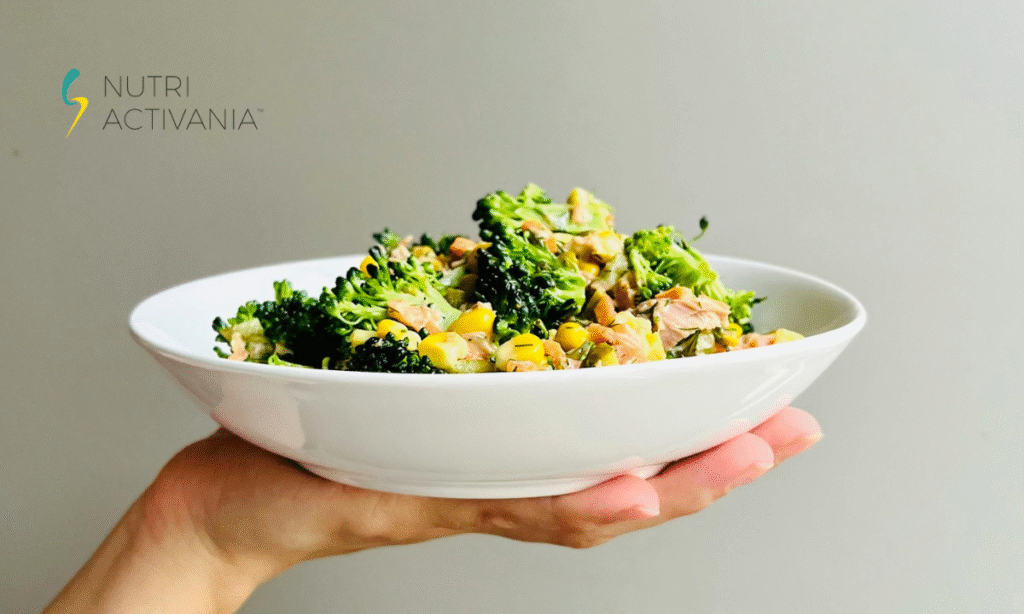When people ask me at Nutri Activania about “nutritionist and dietitian”, the question always comes down to one thing: what do those titles mean, how are they different, and what should you look out for?
Avni Kaul, a top dietitian and nutritionist in Delhi, will walk you through what a dietitian is, what a nutritionist is, whether a nutritionist is a doctor, whether a dietitian is a doctor, and how you can choose the right professional for your needs.
Who Is a Dietician?

In my work as a practising Dietician at Nutri Activania, I often explain that a dietitian, sometimes called a registered dietitian (RD) or registered dietitian-nutritionist (RDN), is a regulated healthcare professional with specific training in nutrition and dietetics and medical nutrition therapy and often works alongside doctors, nurses, and other healthcare staff.
According to widely recognised sources, to become a dietitian, one typically must earn a bachelor’s degree (and sometimes a master’s), complete supervised practice (internship) hours, pass a national registration exam, and in many places also hold a licence or credential.
Because of that rigorous training, dietitians are qualified to assess nutritional needs for people with illnesses, design meal plans tailored to health conditions, work in hospitals or clinical settings, and provide medical nutrition therapy.
Who Is A Nutritionist?
On the other hand, the term “nutritionist” covers a much broader group of professionals who advise about food, diet, and nutrition in general.
Some nutritionists hold formal degrees and certifications, while others may simply adopt the title without a regulated credential. In many jurisdictions, the term “nutritionist” is not legally protected, meaning that someone can call themselves a nutritionist without having completed the rigorous training a dietitian must.
Thus, when someone asks “what are nutritionists?”, the answer is: they are practitioners (or advisors) in the field of nutrition and diet, but their level of training, scope of practice, and regulation can vary widely.
Is A Nutritionist / Dietician A Doctor?
Short answer: No, neither title automatically means “doctor” in the sense of a medical physician (MD) unless the individual also holds a medical degree. A dietitian is a healthcare professional, but generally is not a medical doctor. A nutritionist, likewise, is not automatically a doctor.
In the case of a dietitian, their training is substantial in nutrition, dietetics, and food science, but they don’t perform the full scope of practice that a physician does (unless they have additional degrees). A dietitian may collaborate with doctors in clinical settings, but is not typically a doctor.
For a nutritionist, because regulation is looser, many are not qualified or licensed to provide medical diagnosis or treatment, so their role is different. It’s important to check credentials and the scope of practice when working with either.
What Is The Main Difference Between A Nutritionist And A Dietician?
Given what we have seen, I would like to summarise it simply in practice with my clients at Nutri Activania:
- A dietitian is credentialled, regulated, can provide clinical nutrition therapy, and works in healthcare settings or as part of a medical team.
- A nutritionist provides more general nutrition advice, may not have the same regulated credentials, and may focus on wellness, food habits, and lifestyle rather than medical conditions.
In other words, all dietitians can be considered nutritionists (since they work with nutrition), but not all nutritionists are dietitians. This is a distinction made by sources in trusted medical-nutrition literature.
When Should You See A Dietician Versus A Nutritionist?
From my lens at Nutri Activania, I guide clients depending on their situation:
- If you have a medical condition (for example, diabetes, kidney disease, or severe weight issues) or you need medical nutrition therapy, you should see a registered dietitian. Their expertise covers the diagnosis-adjacent work and tailored nutritional interventions.
- If you are generally healthy and want guidance on better eating habits, lifestyle improvement, wellness or preventive nutrition, then a well-qualified nutritionist may serve your needs. But even then, it’s wise to check the nutritionist’s credentials, education, experience, and whether they collaborate with clinical professionals.
Working With Me at Nutri Activania
Since I practise as a dietitian at Nutri Activania, I bring years of clinical and wellness experience, bridging medical nutrition therapy and lifestyle nutrition.
My approach is personalised: assessing your health history, understanding your dietary habits, collaborating with any physicians or other health-care providers as needed, and then devising a practical, sustainable diet and nutrition plan.
If you come to us with a general wellness goal or a complex health condition, we tailor accordingly.
Final Thoughts
At Nutri Activania, we believe in empowering you to make informed choices. The difference between a nutritionist and a dietitian matters because your health, your goals and your condition determine the right professional support.
If you’re looking for general advice and support to improve your eating habits, a competent nutritionist in Delhi may be appropriate. If you have a diagnosed medical condition, need therapy, or require a professional who can work with your doctor or hospital team, then a dietitian in Delhi is likely the right choice.
When you choose your partner in nutrition, whether a nutritionist or dietitian, check their education, credentials, scope of practice, and how they align with your needs. Ask: Do they collaborate with medical professionals? Do they have experience with my condition or goal? Are they regulated/licensed in their jurisdiction? These questions ensure you get safe, evidence-based, effective support.
And if you decide to reach out to me at Nutri Activania, I, Avni Kaul, will be ready to support you with clarity, expertise and compassion.


